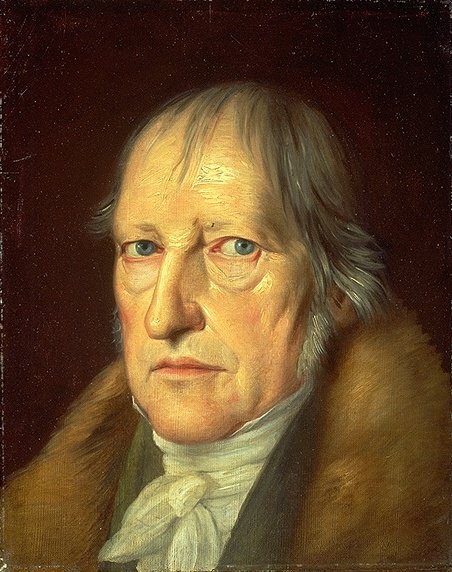quarrk [he/him]
- 66 Posts
- 891 Comments

 5·12 hours ago
5·12 hours agoI agree with the skepticism but it’s a little more complicated than that, I think. It could still benefit the bourgeoisie to keep the US labor force in a system of debt peonage. The workers are paid a wage that exceeds the value of labor power, but that money eventually returns in the form of interest. The main point of Hudson is that the West is highly financialized and receives value primarily through economic rent (value transfer) rather than surplus value (value creation through industry).
One of the reasons shit is so expensive in the US is precisely because of the artificially high price of land which allows landowners to extract rent from individuals and businesses. This shows up in high cost of goods and in very large mortgages.

 5·21 hours ago
5·21 hours ago👍 I will add to my reading list

 11·21 hours ago
11·21 hours agoI haven’t read that Cope book (unfortunate name lol) but seems kinda dubious to say that all western workers are labor aristocratic.
Is the logic that the average US daily wage is higher than the value of the goods produced during the working day, therefore workers are being overpaid for their labor power?
The problem I have is that in Marx, the value of labor-power is flexible, because politically determined. Its value is the value of the goods required for its reproduction, at a certain standard of living. And because it costs more to live in countries like the US, the value of labor power for US workers really is higher.
I would of course agree that it isn’t fair that this is the case, but the reason things are “cheap” in peripheral countries is in large part because of US fuckery which relatively weakens their currencies. This weakening of currencies doesn’t suddenly convert the entire US proletariat into labor aristocrats… IMO. It really feels nonsensical to look at it this way when so many US workers are in poverty.
Well written fan fic. Subscribe
Synthesis: something might not happen

 9·2 days ago
9·2 days agoThis is what immediately came to my mind too. Holy shit. Too on the nose

 26·2 days ago
26·2 days agoTo think this guy used to be a United States Senator. It’s a shame how far he has fallen

 2·2 days ago
2·2 days agoWhile you didn’t say anything wrong here, I think you are missing an important aspect that makes liberals particularly dislike Trump.
It is not merely Trump’s right-wing politics which upset liberals.
The thing that most upsets liberals is his open disdain for the institutions of the American state. Every American learns that the government was carefully crafted by genius founding fathers who tried to establish a perfect system of checks and balances to prevent tyranny. This is why there are so many override mechanisms like the electoral college, veto power, Supreme Court decisions, etc.
Trump is the first modern president I can think of who views these institutions negatively, that they reinforce the status quo and prevent necessary change (never mind what he thinks needs changing). So where possible, he ignores institutions or abuses them as a means for his own political or personal ends.
So Trump is not merely right-wing. His policies are indeed quite similar to many of his predecessors on either side. He is right-wing but in a way that undermines the very foundation of liberalism, which is liberal institutions.
Couple all of the above with the incorrect liberal identification of fascism with “authoritarianism” as such, and you end up with a population that literally believes that Adolf Hitler was elected. Now, that’s kinda true, but the reason is his politics (which are not functionally that different from Biden) and not the means by which he achieves his politics.

 14·2 days ago
14·2 days agoIn the article about prison transfers to ICE
CDCR documents recently obtained under public records laws by the ACLU of Northern California show that in just two months last year California turned over 200 people to ICE after they’d served their time in prison.
I’m only getting started going through all your links, and this one already has me pissed off

 9·2 days ago
9·2 days agoThank you so much

 4·2 days ago
4·2 days agoAnd also write the piece in that time 😂
Kinda suggests it was pre-written

 15·2 days ago
15·2 days agoThe Republican Party, if its leaders had an ounce of integrity, would demand the same, but it won’t, because they don’t. That makes it all the more important that Democrats put the country’s interests first

 6·2 days ago
6·2 days ago7:57 a.m. in Lisbon where the author was

 10·2 days ago
10·2 days agoPresidenovunidesates

 13·4 days ago
13·4 days agoCompletely fine as long as the axes are clearly marked and consistently spaced

 3·4 days ago
3·4 days agoPlease tell me this is fake

 33·4 days ago
33·4 days agoI don’t know how anyone comes back from that tbh. That is a life ruiner. Can’t look any family or friends in the eye ever again. Change your identity and move far far away.

 1·4 days ago
1·4 days agodeleted by creator













This probably goes without saying, but to analyze why the “easy” version feels so shit. It loses information. A book transformed in this way would be a different book.